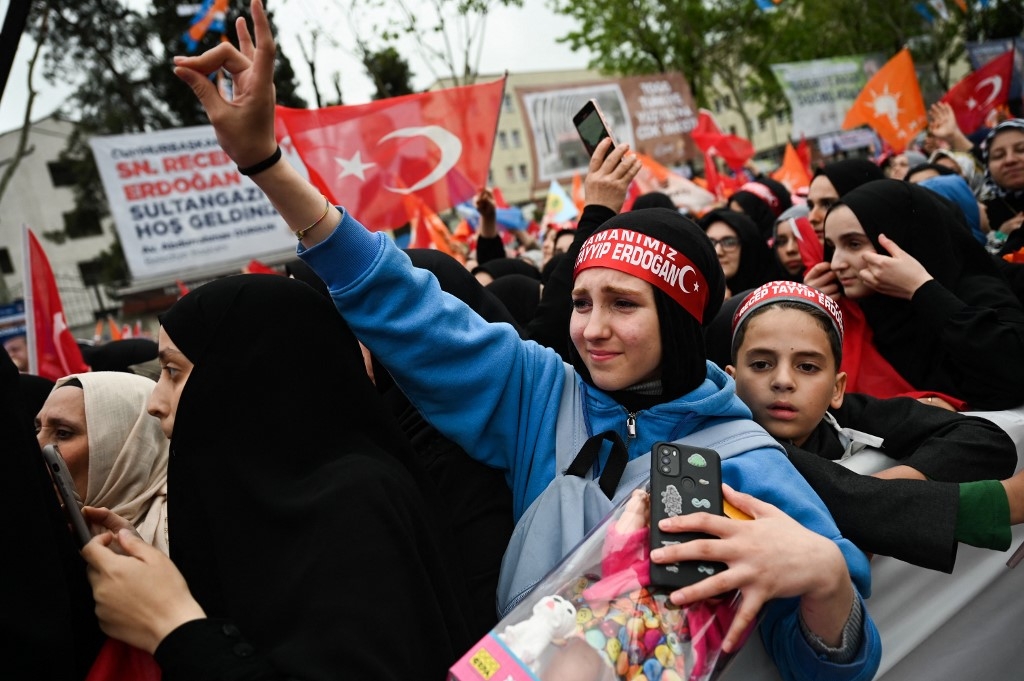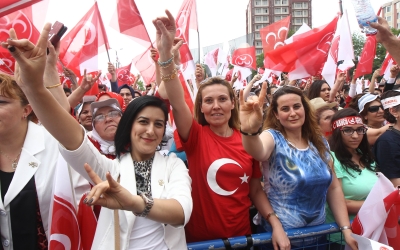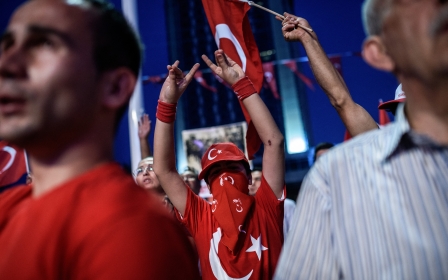German city bans school gesture over similarity to Turkish Grey Wolves salute

The German city of Bremen has banned the "silent fox" gesture used in schools to call for quiet in classrooms because of concerns it resembles the Turkish nationalist "wolf sign".
Authorities in the city said they had long been mulling a ban on the "silent fox" instruction due to the similarity with the Turkish gesture, which is most heavily associated with the Turkish far-right Grey Wolves organisation.
“The political meaning of the hand gesture is absolutely incompatible with the values of the city of Bremen,” said Patricia Brandt, a spokesperson for Bremen’s education authority, although she added that the continued occasional use of it in schools "cannot be ruled out".
She added that the silent fox was also "pedagogically" out of date, regardless, and should be replaced.
Controversy around the Turkish nationalist gesture has been kicked up after it was used by Turkish national football player Merih Demiral to celebrate scoring in Turkey’s round of 16 match against Austria at the Euros.
New MEE newsletter: Jerusalem Dispatch
Sign up to get the latest insights and analysis on Israel-Palestine, alongside Turkey Unpacked and other MEE newsletters
His use of the gesture earned Demiral a two-match ban and sparked fury in Turkey, with hundreds of fans displaying the wolf sign at subsequent matches in solidarity with the defender.
Although the wolf sign is most heavily associated with the far-right Nationalist Movement Party (MHP) and the associated Ulku Ocaklari movement (commonly referred to as Grey Wolves), many mainstream politicians have also used the gesture in public rallies.
Minorities in Turkey say the wolf sign is a symbol of Turkish chauvinism and associate it with brutal crackdowns and pogroms against Kurds, Alevis, Armenians and leftists in the country.
Turks have argued it is a sign of national pride, while Turkish President Recep Tayyip Erdogan has claimed the ban on Demiral over the use of the gesture was "unfair and biased".
Turks form the largest ethnic minority in Germany, and much of the politics of Turkey has been imported into Germany in the past 50 years.
According to a 2017 report by the Federal Agency for Civic Education, the Grey Wolves - operating through organisations such as the Federation of Turkish Democratic Idealist Associations - are currently the largest far-right movement in Germany, dwarfing even home-grown groups.
There have been repeated calls for a countrywide ban on the group, including by Kurdish diaspora groups who blame it for street violence and attacks on pro-Kurdish demonstrators.
Middle East Eye delivers independent and unrivalled coverage and analysis of the Middle East, North Africa and beyond. To learn more about republishing this content and the associated fees, please fill out this form. More about MEE can be found here.





